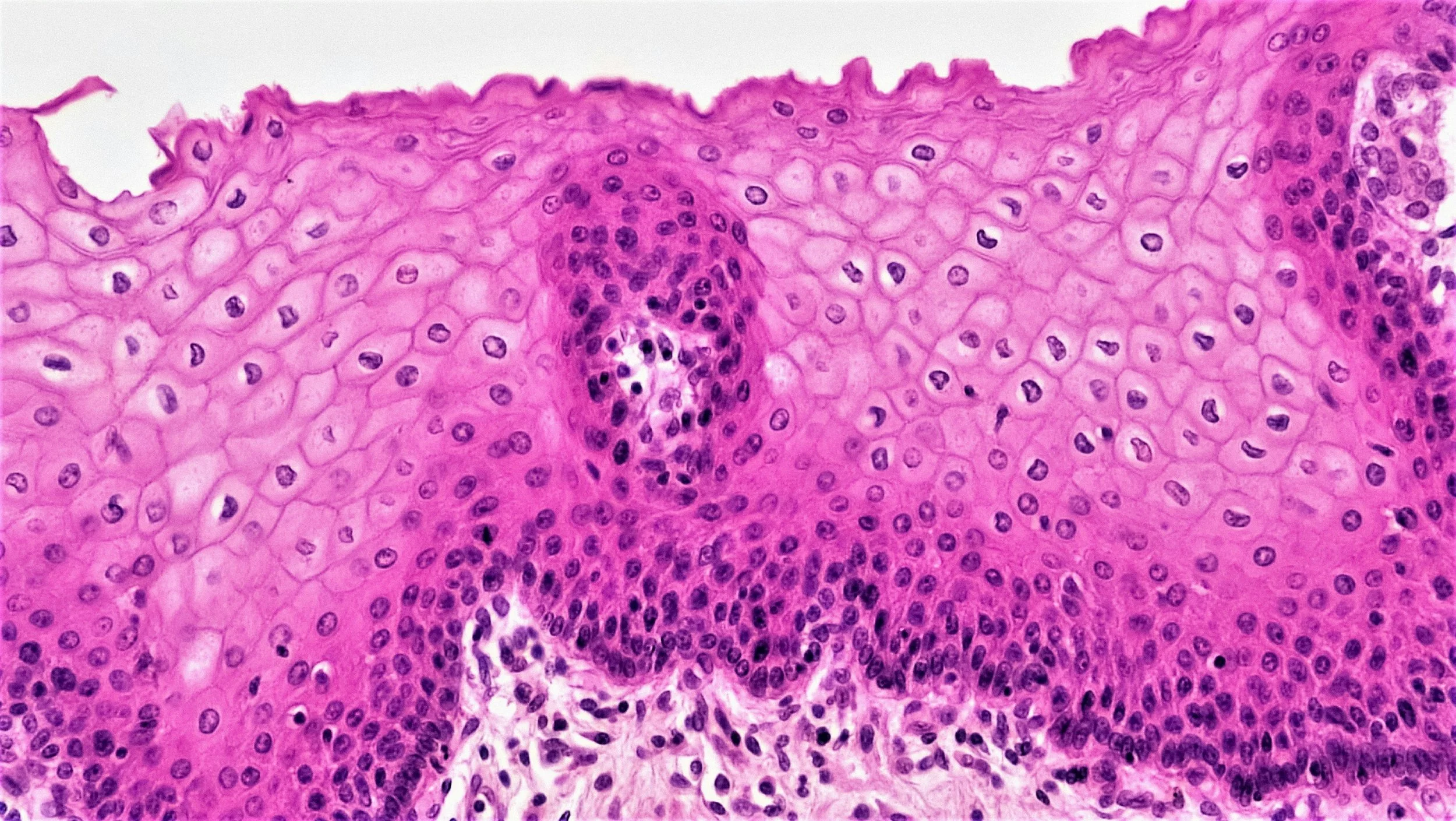Gut Feeling: Unravelling the Connection Between Bowel Health, the Gut Microbiome, and Psoriasis
Introduction
The relationship between gut health and various skin conditions has gained considerable attention. Among these conditions, psoriasis stands out as a chronic inflammatory skin disorder affecting millions worldwide. This blog delves into the intriguing connections between bowel health, the microbiome, and psoriasis, exploring how what we eat may impact our gut and skin health, including the crucial role of bile acids.
Photo by Bioscience Image Library by Fayette Reynolds on Unsplash
The Gut-Skin Axis: A Complex Relationship
The concept of the gut-skin axis is an emerging area of research, suggesting that the gut microbiome can significantly influence skin conditions, including psoriasis. The gut microbiome, composed of trillions of bacteria, fungi, and other microorganisms, plays a crucial role in digestion, immune function, and overall health. When the balance of this microbiome is disrupted—due to poor diet, stress, or antibiotics—it can lead to a cascade of health issues, including inflammation that may exacerbate skin disorders.
Image by Gerd Altmann from Pixabay
Understanding Psoriasis
Psoriasis is characterized by red, scaly patches on the skin, resulting from an accelerated skin cell lifecycle. This chronic condition is often linked to autoimmune responses, where the body’s immune system mistakenly attacks healthy cells. Recent studies suggest that individuals with psoriasis may have a distinct microbiome profile compared to healthy individuals, highlighting a possible link between gut health and skin inflammation. Furthermore, abnormal bile acid levels have been observed in psoriasis patients, suggesting a potential pathway through which gut health impacts skin conditions.
The Role of Diet in Bowel Health
A diet rich in fibre, with adequate vegetables and fruits, supports a diverse and balanced microbiome, promoting better bowel health. Conversely, diets high in processed foods, sugars, and unhealthy fats can lead to dysbiosis—an imbalance in the gut microbiota that may trigger inflammatory responses. Research indicates that individuals with psoriasis may benefit from dietary changes that foster a healthier gut environment. Importantly, dietary fibre can influence bile acid metabolism, thus enhancing the beneficial effects on gut and skin health.
Bile Acids: The Unsung Heroes of Gut Health
Bile acids, produced by the liver and stored in the gallbladder, are vital for the digestion and absorption of fats and fat-soluble vitamins. However, their role extends beyond digestion; they also influence the gut microbiome composition and overall health of the intestines. Bile acids act as signalling molecules, regulating multiple metabolic pathways and maintaining gut homeostasis. Recent studies have shown that an imbalance in bile acids can lead to dysbiosis, which may contribute to inflammatory conditions like psoriasis.
Microbiome, Bile Acids, and Inflammation
Inflammation plays a central role in both psoriasis and gut health. The gut microbiome can influence systemic inflammation by impacting the immune system and bile acid metabolism. Certain beneficial bacteria produce short-chain fatty acids (SCFAs) during the fermentation of dietary fibre, which can help reduce inflammation. Additionally, bile acids have been found to modulate immune responses and inflammation in the gut. Studies have shown that individuals with psoriasis often have lower levels of these beneficial SCFAs and altered bile acid profiles, suggesting that enhancing gut microbiome diversity and bile acid balance could be a viable therapeutic approach.
Image by Alicia Harper from Pixabay
Probiotics and Psoriasis: A Promising Frontier
Using probiotics, live microorganisms that confer health benefits, has gained traction as a potential treatment for various skin conditions, including psoriasis. Some studies have shown that specific strains of live microorganisms can reduce inflammation and improve skin barrier function, and may also positively influence bile acid metabolism, enhancing their therapeutic potential. While more research is needed, incorporating live microorganisms into your diet may help support gut and skin health.
Functional comprehensive stool testing can be an insightful tool for understanding root causes of psoriasis, offering a window into the gut to enable targeted nutritional and supplemental support.
Conclusion: A Holistic Approach to Health
As we continue to explore the intricate connections between gut health, the microbiome, bile acids and psoriasis, it becomes clear that holistic approaches are essential. Prioritising balanced nutrition, reducing stress, and nourishing the gut microbiome may offer relief from psoriasis severity and flares, while also supporting overall health and well-being.
In this journey towards better health, remember that what’s good for your gut may also be good for your skin.
So, listen to your body, and nurture your microbiome. Your skin, and whole body, will thank you for it.
Would you like to find out more about how nutritional therapy could help you soothe your skin?



